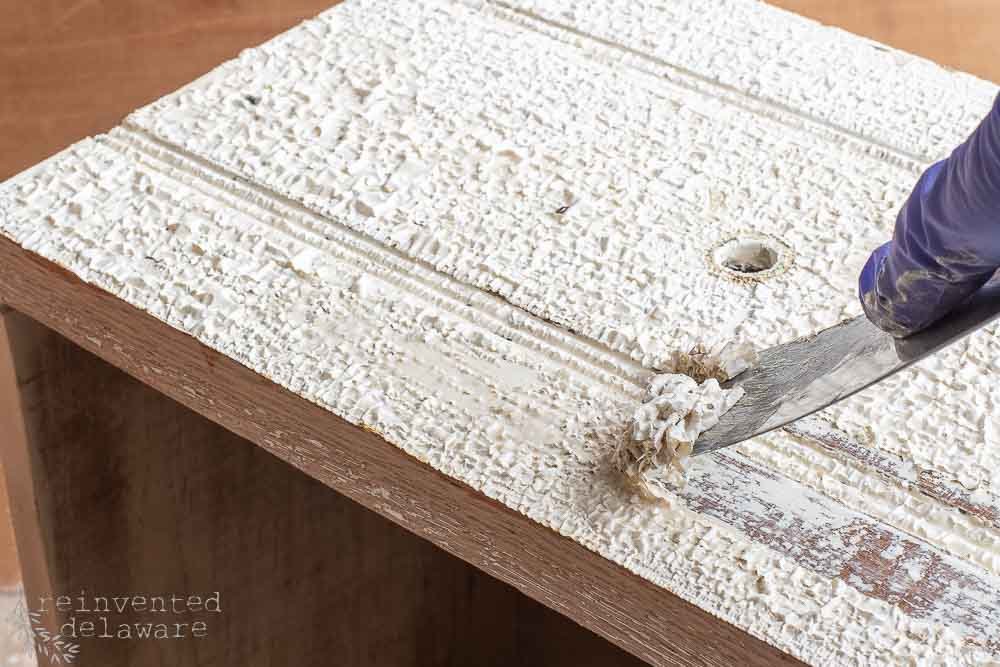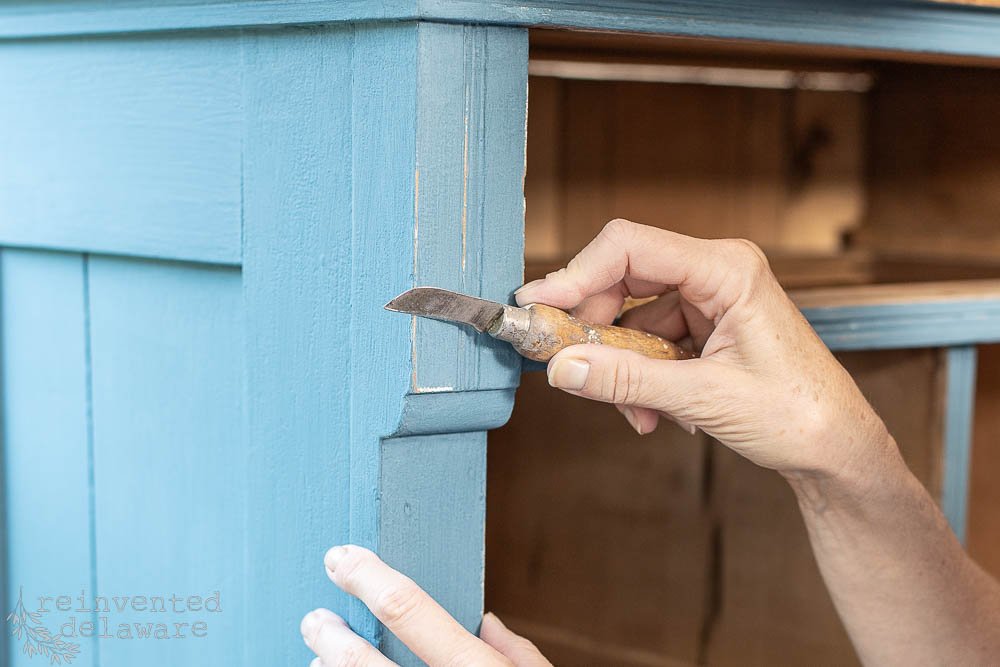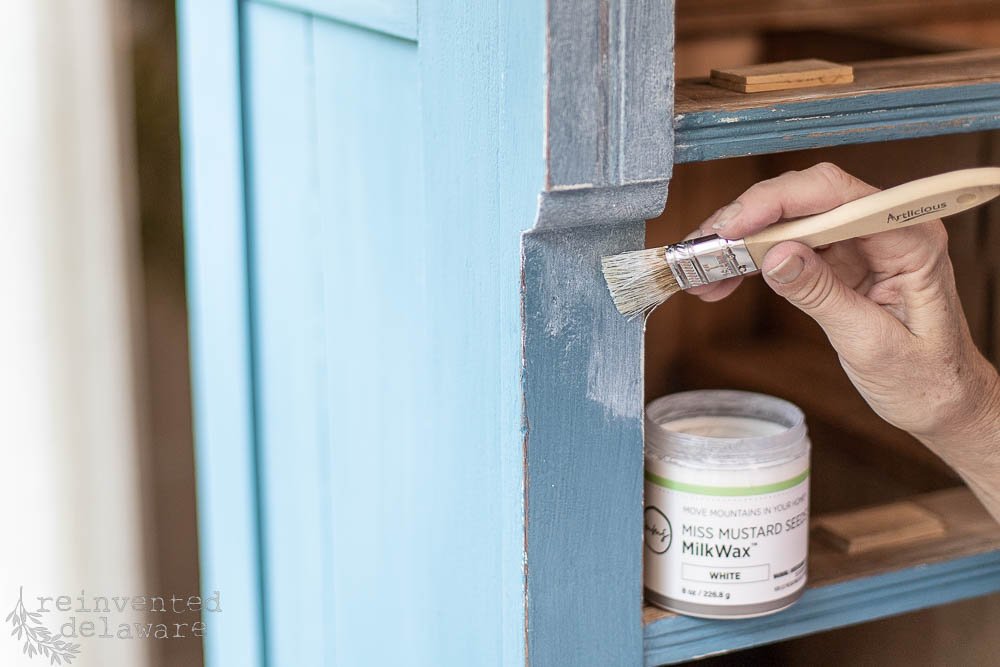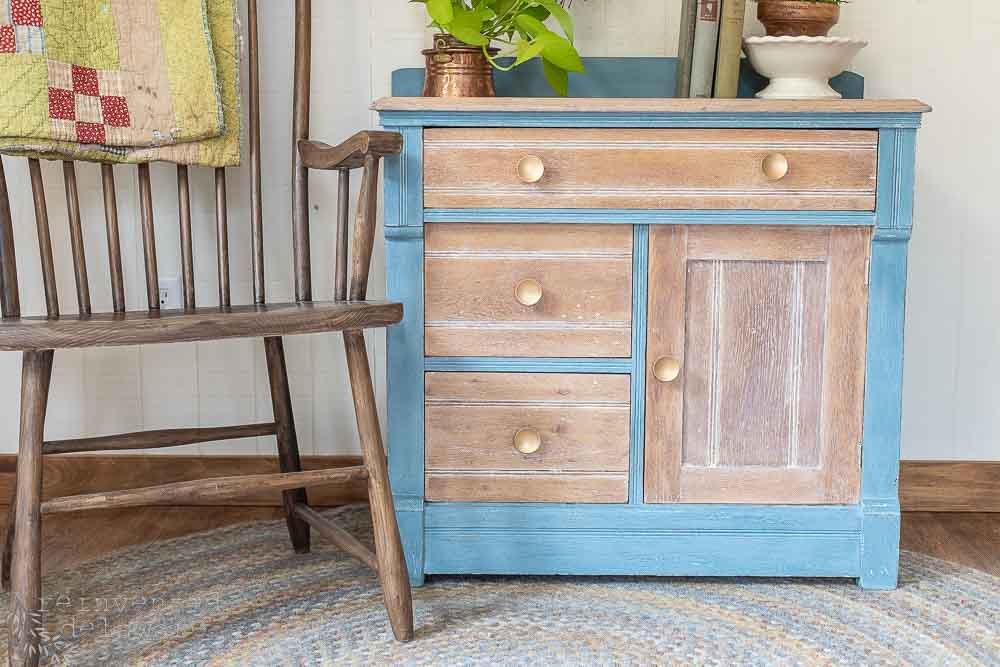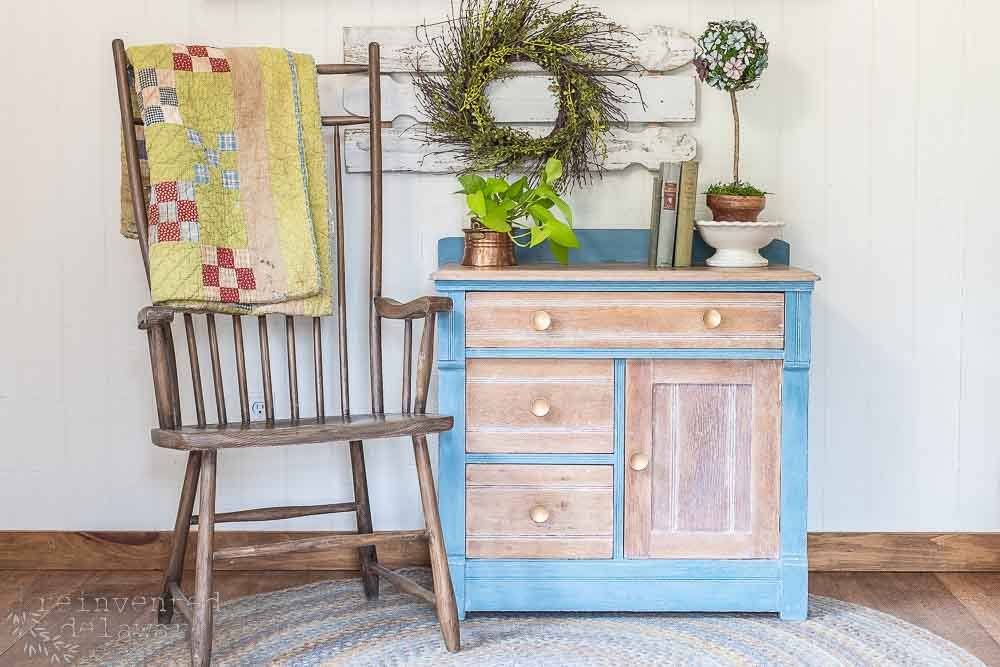Washstand In Flow Blue MilkPaint™
An Antique Washstand Gets A MilkPaint™ Makeover In Flow Blue
Do you love painted furniture, or do you prefer a natural wood look for your home? Today’s post will satisfy both preferences! Let’s get started!
The following post may contain affiliate links. That means if you click and then buy something, I will make a small commission at no additional cost to you! Thank you for supporting my blog. Full disclosure here.
Finding A $2 Washstand
Finding great deals is one of the best parts of restoring old furniture pieces. And this washstand ranks high on the list of good deals! Hubby was at an auction recently and bought this lovely washstand for around $2.
Prepping The Washstand
The downside of finding great deals like this one is why it is such a good deal. This washstand had four layers of paint that had been poorly applied, and it was downright ugly! The ugly layers of paint had to come off, so I grabbed my favorite paint stripper and got to work! You can see how I strip paint by clicking HERE.
Once most of the paint had been removed, I cleaned the piece and allowed it to dry. Then I sanded the whole thing with 220 grit sandpaper on my orbital sander. The next step was to apply two coats of clear Shellac to seal the piece.
The process of stripping and sanding the piece helped me to make the decision about paint and natural wood. The old paint came off of the drawers, the top, and the door easily, but the sides and frame, not so much. So I sanded the drawers, the top, and the door fronts down to the wood and then just smoothed out the stripped paint on the sides and frame with the sander.
Painting The Washstand In Flow Blue MilkPaint™
The next decision was the color choice. Miss Mustard Seed’s® MilkPaint™ offers the most beautiful milk paint colors, but I knew I wanted to go with a shade of blue. And I chose Flow Blue.
The first coat of MilkPaint™ can look a bit rough, but that’s normal. You can see the difference between the first coat and the second in the image above. I applied three coats to the framing and the sides of this piece.
Waxing The Natural Wood With MilkWax™White
While I waited for the first coat of paint to dry, I decided to wax the natural wood on the rest of the piece. Then it struck me how beautiful this natural wood would look if I used MilkWax™ White, especially since there were traces of the old white paint in the grooves of this washstand!
It’s super easy to apply MilkWax™ White: using a chip brush, brush the wax onto the surface and brush it on against the grain. Then go back with the chip brush and smooth it out with the grain. Applying it this way helps the white wax to settle into the grain of the oak washstand.
Wipe off the excess white wax with a paper towel in the direction of the grain and allow it to dry completely. It will take about 30 days to completely cure to a hard, durable finish.
Distressing The Washstand
Remember the old white paint on the sides that I didn’t remove? I thought Flow Blue would tie in nicely with the white waxed wood if I distressed it back to the old white paint. So I gently scraped back some of the areas with this little knife. Then I used a fine-grit sanding pad to smooth out the painted surfaces. Grab your shop vac for clean-up after this step!
Finishing The Washstand In MilkWax™ White
Then it all clicked for me! I decided that white had become a theme for this piece, so I grabbed my Miss Mustard Seed’s® MilkWax™ in White and waxed the Flow Blue painted surfaces!
Just look how it settled into all of the nook and crannies of this gorgeous washstand!
The Final Result
Let’s take a look at this piece in all of its painted and natural wood finish!
Isn’t it just so lovely?? The painted framing helps the natural wood tones of the top, the drawers, and the door to stand out and be noticed. The white wax on all of the surfaces helped to bring it all together, don’t you think?
And take a look at the Knapp joinery on the drawers! It makes me want to keep the drawers open!
Here is another look at this gorgeous antique piece of history from the middle 1800s.
By the way, did you notice the adorable topiary sitting on top of the washstand? It’s made from pine cones, and I can show you how to make it on my blog. Just click HERE to read about it!
Did you find this post helpful in deciding whether or not to paint a piece, leave it in natural wood or do a little of both? Let us know in the comments! We would love to hear from you!
Thanks for joining us today, and we will see you next time!



